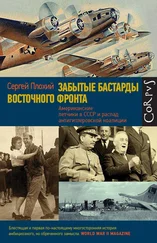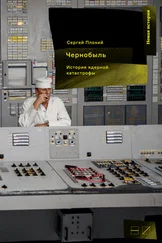The man who served as gatekeeper to the Soviet nuclear paradise was Viktor Briukhanov’s immediate superior, the fifty-six-year-old minister of energy and electrification, Anatolii Maiorets. New in office, he was eager to prove himself. Faced with the task of increasing the production of electricity at nuclear power stations by two and a half times within the next five years, he sought ways of fulfilling the task when the entire construction cycle of a nuclear power plant—from the start of architectural design to the completion of the reactor—took seven years. Maiorets told the congress that the cycle could be reduced to five years if the design and construction could take place concurrently. Briukhanov knew how difficult it was to deal with half-baked architectural designs not adapted to local conditions. Since few reactors were actually completed within the seven-year time frame, reducing it to five years seemed impossible. But if the party so ordered, and the state managers demanded it, the plant managers had no choice but to fall in line.
Maiorets finished his report on a high note: “Let me assure you that electrical power engineers and builders, inspired by the decisions of the 27th congress of the CPSU, will carry out the party’s grand plans and make a worthy contribution to constructing the material basis of communism.” 21It seems to have escaped him that the party was no longer building communism, but then, as a new minister, he could be overenthusiastic.
The whole atmosphere at the congress was one of jubilation. Everyone wanted to think big and believe that anything was possible. Among the most optimistic delegates was Gorbachev himself. His report was received very well, his vision for the acceleration of economic development based on scientific and technological progress was endorsed by the congress, and he was now elected general secretary not only by the plenum of the party’s Central Committee but by the congress as well. His standing had improved, and his mandate to carry on his acceleration policies was strengthened.
Moreover, Gorbachev was able to bring his own people into the Politburo. Among them was the energetic party boss of Moscow, Boris Yeltsin, who asked, rhetorically, “Why do we keep raising the same problems from one congress to the next? Why, even now, do demands for radical reform get bogged down in the inert stratum of opportunists with party cards?” His words sounded like a bomb-shell in an auditorium still full of Brezhnev’s appointees. The word “perestroika,” or restructuring, was mentioned in Gorbachev’s report to the congress, but only once. The key word was still “uskorenie,” acceleration, which had first been introduced in official party discourse immediately after Gorbachev’s ascension to power in the spring of 1985. Most delegates believed that they were on the right track, the problem being the stagnation of the Brezhnev era. The solution lay in a return to Lenin’s ideals of true communism. 22
The congress ended on March 6. Viktor Briukhanov and his colleagues in the Ukrainian delegation packed their bags and headed home. The future looked bright, not only for the nuclear industry but also for the country as a whole. But there was one thing that bothered the director of the Chernobyl nuclear plant. In an evening telephone interview from his Moscow hotel, Briukhanov had shared his concern with the Kyiv reporter who had interviewed him a few weeks earlier on the occasion of his fiftieth birthday. As expected, he praised Gorbachev’s report and embraced the new tasks assigned to the Soviet nuclear industry. But he also sounded a warning: “We must hope that this will also promote greater attention to the reliability and safety of atomic energy generation at our Chernobyl station in particular. That is most urgent for us.” The interview with Briukhanov appeared in the newspaper without that warning. 23
2
Road to Chernobyl
On the evening of March 6, 1986, as the invigorated Mikhail Gorbachev hosted a reception in the Kremlin Palace for the foreign guests of the congress—most of them representatives of communist parties who had come to Moscow at Soviet expense—the Soviet delegates were leaving Moscow on planes, trains, and cars. Viktor Briukhanov and his fellow members of the Kyiv delegation boarded a night train to Ukraine’s capital.
The next morning they were in Kyiv, where they were greeted by local party officials. There were hugs, handshakes, and flowers for the women in the delegation—the next day, Saturday, March 8, was International Women’s Day, widely celebrated in the Soviet Union. A news photo taken at the main Kyiv railway station on the morning of March 7 featured Briukhanov in his fur hat and sheepskin coat, surrounded by fellow delegates, one of them a woman holding a bouquet of carnations. Briukhanov would have to get flowers for his wife, Valentina. But the drive home would take more than two hours—the distance between Kyiv and Prypiat was 150 kilometers. 1
The driver of Briukhanov’s company car came to meet him at the railway station and took Moscow Avenue to Highway P02. It led north of Kyiv along the Dnieper Reservoir, which had been created by the hydroelectric power station built there in the 1960s, then turned northeast toward the town of Ivankiv, passing through birch groves and, closer to Chernobyl, entering a zone of pine forests.
Briukhanov had first traveled the Kyiv–Prypiat highway by bus in the winter of 1970, when the city of Prypiat did not yet exist. He was young and full of enthusiasm. Becoming director of a nuclear power plant at such an age was quite an accomplishment, but for a while there had been no plant to talk about. Briukhanov had yet to build it—the plant, his own offices, along with a home for his family, which included his wife, Valentina; their nine-year-old daughter, Lilia; and one-year-old son, Oleg. He rented a room in a run-down hotel in the small town of Chornobyl—in Russian, Chernobyl—which would give its name to the power station Briukhanov yet had to build. He spread out the papers on his bed and began working through draft construction plans and contracts for the first temporary buildings on the spot chosen for the new plant and the new city. Construction would begin in a year. 2
Meanwhile, Briukhanov’s young family stayed in Sloviansk, then a city of 125,000 in the Donbas region of eastern Ukraine, where he had worked previously. The city would become known in 2014 as the place where the Russo-Ukrainian armed conflict began and the first people were killed. The fighting was so fierce there because Sloviansk was the local highway and railway hub as well as a major industrial center. That was why Briukhanov had ended up there in 1966—he had worked at a power plant that produced electrical energy by burning local coal.
Briukhanov’s first power plant was in Angren, not too far from Tashkent, the capital of Uzbekistan, where he had been born on December 1, 1935. He was the oldest child in a large Russian working-class family that had come to the city from Saratov on the Volga. He did not remember much from the World War II years except that he was always hungry. At the age of twenty-four, he graduated from the local polytechnic institute and began his career at nearby Angren. It was there that he met Valentina, who also worked at the plant; in addition, she took evening classes at the local college. He was captivated by her eyes—as he remembered later, he felt that he could drown in them.
When Valentina first encountered Viktor’s surname in a local magazine, he was already making headlines as a qualified and conscientious engineer. He had become head of his unit in just one year, and Valentina thought to herself, “God forbid having such a name”—“Briukhanov” was either derived from or was simply consonant with the Russian word for “belly.” She would soon forget her worries after meeting the bearer of the name, the young, slim, and energetic Viktor. He won her heart, showing his love by inundating her with flowers. Cars coming from the nearby Qurama Mountains brought wild tulips, and Viktor would bring home enough to cover entire windowsills. They got married in a year and were very happy in Angren.
Читать дальше
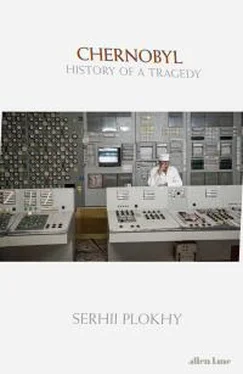

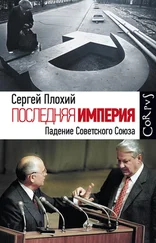



![Сергей Плохий - Чернобыль - История ядерной катастрофы [litres]](/books/385171/sergej-plohij-chernobyl-istoriya-yadernoj-katastrof-thumb.webp)
![Сергей Плохий - Человек, стрелявший ядом [История одного шпиона времен холодной войны]](/books/405163/sergej-plohij-chelovek-strelyavshij-yadom-istoriya-od-thumb.webp)

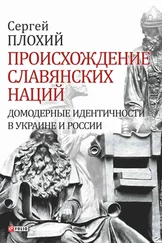
![Сергей Плохий - Потерянное царство. Поход за имперским идеалом и сотворение русской нации [c 1470 года до наших дней]](/books/433093/sergej-plohij-poteryannoe-carstvo-pohod-za-impersk-thumb.webp)
